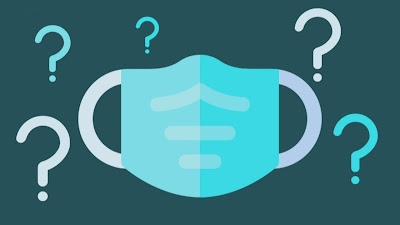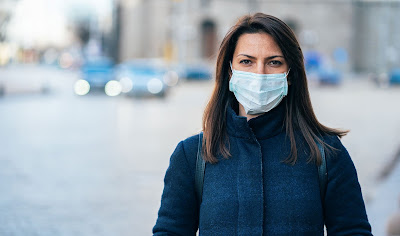 |
| Ultrasound treatment might relieve Parkinson's tremors |
Ultrasound may provide lasting relief from the involuntary muscle movements that are so debilitating to people with Parkinson's disease and another condition called "essential tremor," a small study concludes. The treatment is still scarce. but it appears to deliver significant and lasting tremor relief, Italian researchers report.
It's called "focused ultrasound." Though characterized as surgery, it's actually a noninvasive procedure that involves no Incisions.
For patients with uncontrolled muscle movements, clinicians use it to target beams of sound energy toward a small tremor-control center in the brain called the thalamus. The beams heat up the thalamus and destroy part of it. "The clinical application of this technique for neurological diseases is an absolute novelty." study author Dr. Federico Bruno, a radiologist at the University of L'Aquila in Italy, said in a statement. "Few patients know of this treatment option so far, and there are not many specialized centers equipped with the required technology."
He pointed out that focused ultrasound received U.S. Food and Drug Administration approval less than three years ago as a tremor-control treatment. Before then, patients had to rely on other interventions,according to Dr. Rachel Dolhun, vice president of medical communications for the Michael J. Fox Foundation in New York City. "Exercise, medication and surgical therapies such as deep brain stimulation are all possibilities for consideration," she noted.
But exercise and medication don't always work. And while deep brain stimulation (DBS) targets the same brain area as noninvasive ultrasound, it is highly invasive.
 |
| Ultrasound treatment might relieve Parkinson's tremors |
Surgeons must enter the skull and chest to Insert wires, electrodes and a pacemaker-like pulse generator. It can also be tricky after surgery to calibrate the device to maximize tremor reduction and minimize unwanted side effects. Plus, Patients with heart and bleeding problems may be ineligible for the procedure. Dolhun and her team said, as are those with memory and thinking issues. The DBS equipment also requires vigilant maintenance, in the form of regular battery replacement.
By comparison, focused ultrasound, though irreversible. "requires shorter hospitalization and is a fairly well-tolerated procedure even by more fragile patients," Bruno said.
But does it work?
Bruno and his team tracked 39 patients (average age, 65) for just over a year after focused ultrasound treatment. Just over half (21) had Parkinson's. The rest had essential tremor (ET), a common type of tremor that may affect the hands, arms, legs, head, trunk and even tongue.
On average, participants had had tremors for more than a decade. None had responded to standard treatments.
All underwent focused ultrasound, which is performed without general anesthesia on one side of the thalamus. (Doing ultra- sound on both sides could trigger speech, swallowing and thinking problems, so it is approved only for one side.)
The result? Thirty-seven of the 39 patients experienced immediate and significant tremor relief, and that relief held up over the next year. Both Parkinson's and ET patients reported marked improvements in their quality of life.
For now, however, focused ultrasound is only available at a few specialized facilities worldwide. But both Bruno and Dolhun suggest that this may change.
 |
| Ultrasound treatment might relieve Parkinson's tremors |
"There are a number of clinical trials testing focused ultrasound as a noninvasive procedure for other Parkinson's symptoms." Dolhun said. Those symptoms include duskiness, uncontrollable muscle movements that result in fidgeting, swaying, writhing, wriggling or head bobbing.
Bruno said other studies are investigating its potential for treating neuropathic pain, epilepsy and obsessive-compulsive disorders, as well as brain tumors. And as neuroimaging techniques improve, he predicts ultrasound's potential and availability will expand.
Bruno and his team are to present their findings next Wednesday at the Radio logical Society of North America annual meeting in Chicago. Research presented at meetings is typically considered preliminary until published in a peer-reviewed journal.
Experts in the diagnosis and treatment of Parkinson's disease suggest they are on the verge of developing new ways of identlfying the condition earlier - and better managing its debilitating symptoms. In a presentation Tuesday at the XXIV World Congress of Neurology in Dubai, researchers from the Center for Neurodegenerative Science at Van Andel Institute in Grand Rapids, Mich, told more than 4,000 neurologists from around the world in attendance that recent studies suggest that other health conditions -- like rapid eye movement sleep behavior disorder, constipation, depression, hyposmia, anxiety and excessive daytime sleepiness may be predictors of the onset of the movement disorder.
The Mayo Clinic describes rapid eye movement, or REM, sleep behavior disorder as a sleep disorder in which you physically act out vivid, often unpleasant dreams with vocal sounds and sudden, often violent arm and leg movements.
























